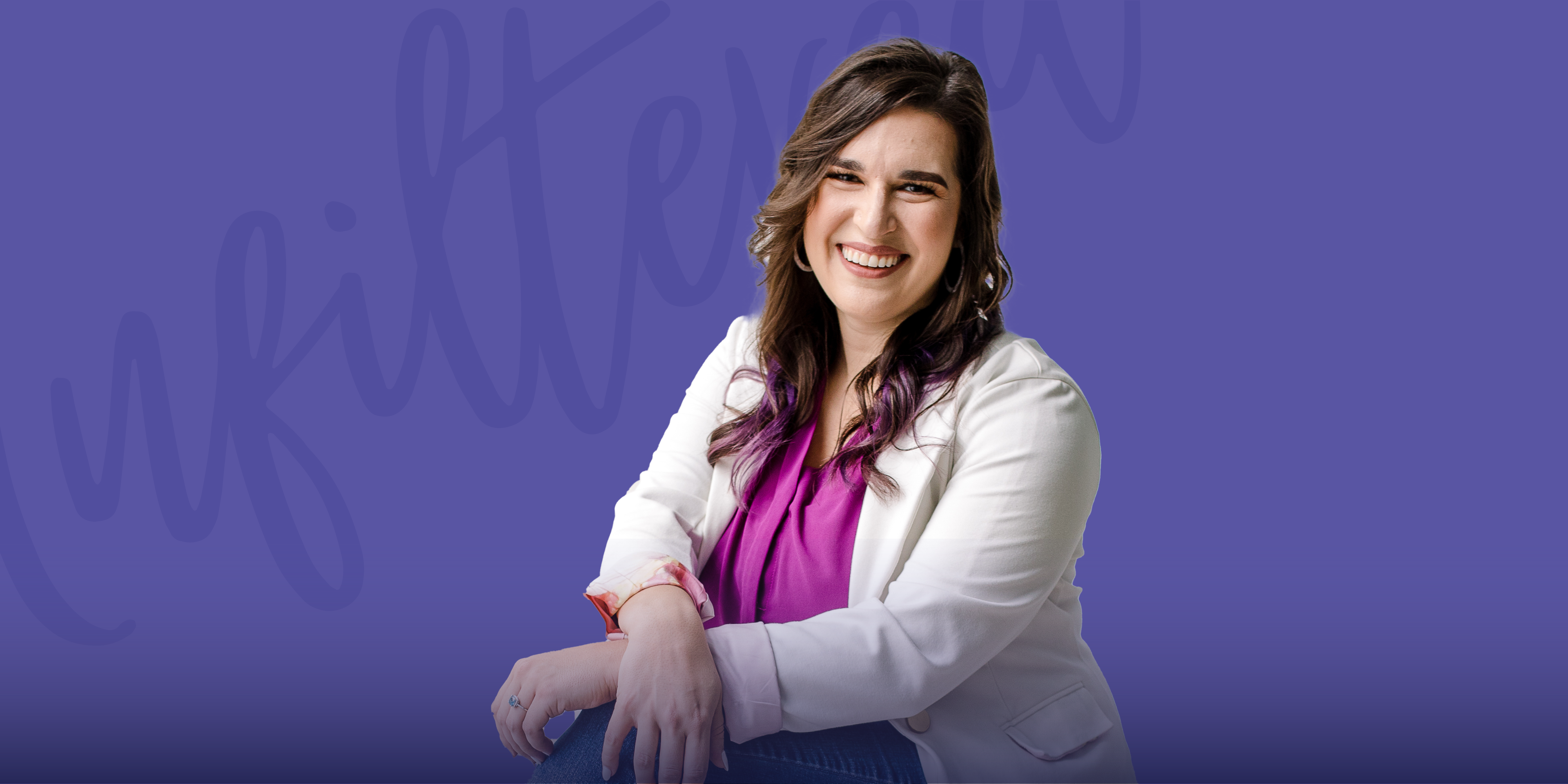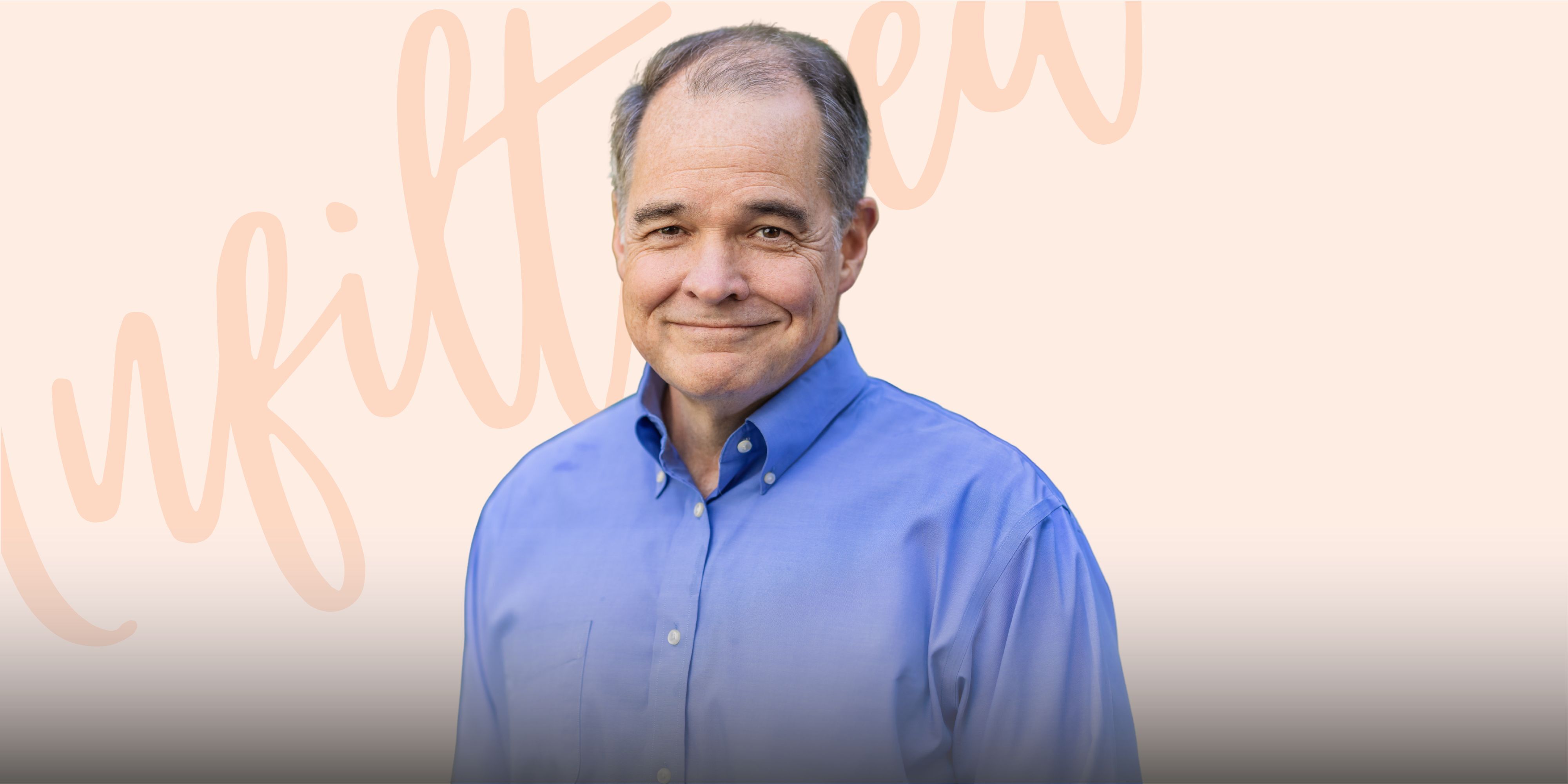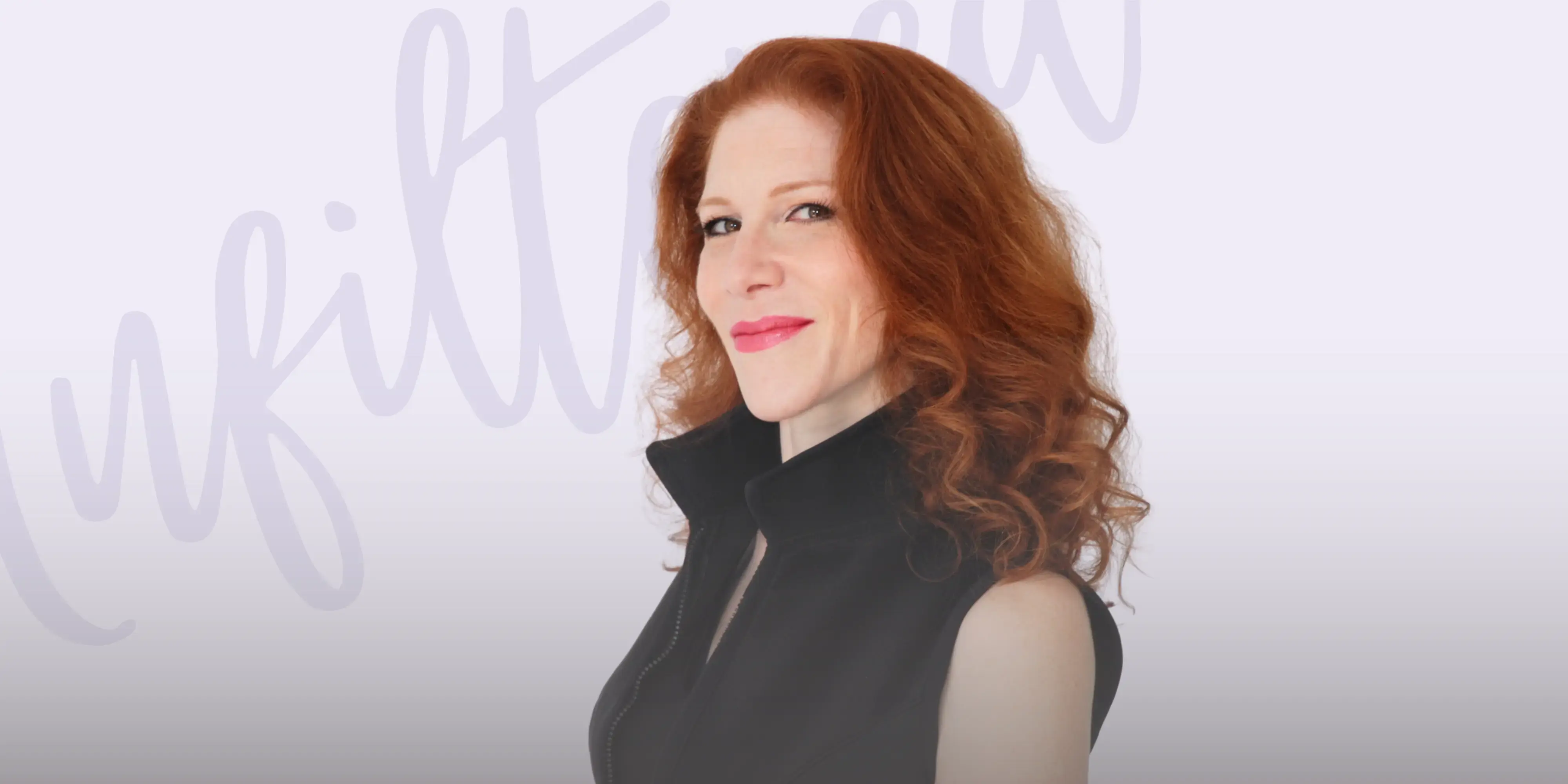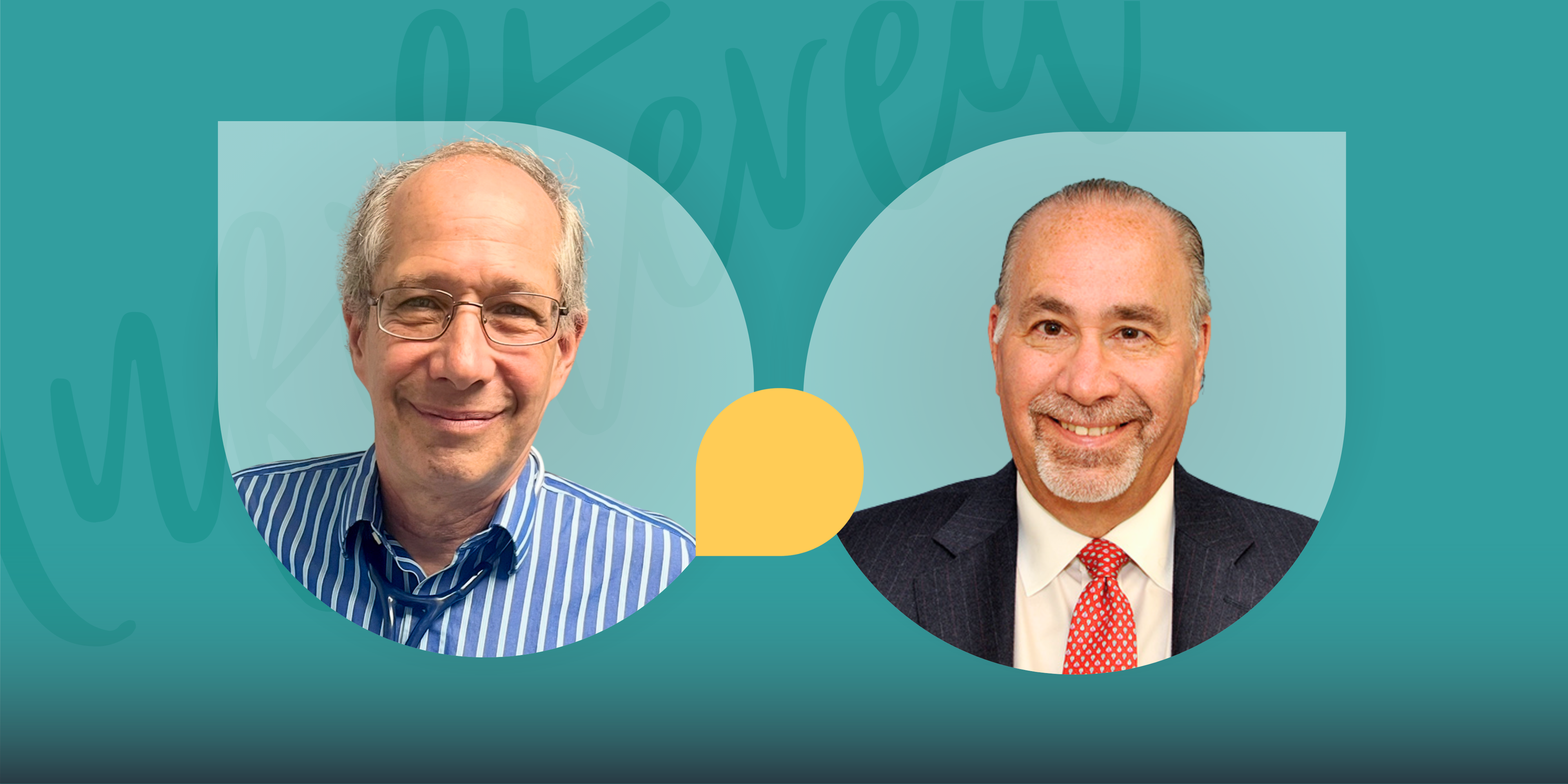Ozempic and similar GLP-1 medications are making headlines—and for many, they offer hope in a world obsessed with weight. But underneath the excitement lies a deeper issue: our culture’s fixation on thinness and quick fixes.
In this blog and podcast episode of Sofia Unfiltered, we unpack how diet culture has shaped our view of health, the limits of weight loss medications, and why true wellness has little to do with the number on a scale. Whether you're taking Ozempic, considering it, or exhausted by the pressure to shrink, this is your invitation to think differently.
Because health isn’t about being smaller, it’s about living better—on your terms.
Can You Improve Your Health Without Losing Weight?
Yes! You can significantly improve your health without losing a single pound.
True health isn’t defined by the number on a scale. According to Melyssa Allen, double board-certified lifestyle medicine professional, the key to sustainable wellness is not weight loss—it's building consistent habits that support your physical, mental, and emotional well-being.
Ready to shift your focus to health-first habits? Explore Health Coaches, Nutritionists, and Fitness Instructors on Sofia Health
Weight is just one metric—and often not even the most important one. "The scale tells us how much gravity is pulling on our body. It doesn’t show us our habits, our stress levels, or our mental health,” she explains. Research confirms that people in larger bodies can still be metabolically healthy if they engage in key behaviors like exercise, nutritious eating, and good sleep hygiene. True health is reflected in your behaviors, energy, mood, sleep, and resilience.“The number on the scale is only one small piece of the puzzle,” says Allen. “It doesn’t reflect muscle mass, mental health, or lifestyle choices.”
Better indicators of health include:
- Waist-to-hip ratio
- Body fat percentage
- Muscle composition
- Mental well-being
According to Allen, “one pound of muscle and one pound of fat weigh the same but they behave differently in your body.” The number on the scale doesn’t capture your strength, endurance, or resilience.
Measure what matters. Browse Fitness Instructors and Yoga Teachers to support your journey.
Can you lose weight without Ozempic?
Yes, but that’s not the full story. As lifestyle medicine expert Melyssa Allen shares on Sofia Unfiltered, weight loss isn’t the only path to health. In fact, it’s not even the most accurate measure.
Many individuals improve their:
- Blood pressure
- Cholesterol levels
- Sleep quality
- Mental health
…without losing a single pound. Health is about what you do, not what you weigh.
More importantly, focusing solely on the scale can:
- Discourage you when progress doesn’t show up in numbers
- Overshadow non-scale victories like improved energy, sleep, or confidence
- Reinforce the harmful belief that smaller = better
Quick Tip: If you're trying to improve your health, track behaviors, not just numbers. Celebrate getting to the gym, prepping a healthy meal, or choosing sleep over scrolling.
What Is Lifestyle Medicine?
Lifestyle medicine is a growing medical specialty focused on using daily habits as therapeutic tools to prevent and even reverse disease. This field uses a science-backed approach to healing that focuses on six key pillars.
How Does Lifestyle Medicine Help With Weight and Wellness?
Unlike conventional care, which often relies on prescriptions and brief appointments, lifestyle medicine works to restore health through behavior change.
Allen, a board-certified lifestyle medicine professional, explains the six evidence-based pillars:
- Nutrition: Focus on plant-forward, whole-food meals
- Exercise: Move regularly and intentionally
- Sleep: Prioritize 7–9 hours of restorative rest
- Stress Management: Use tools like meditation and breathwork
- Substance Avoidance: Minimize alcohol, tobacco, and vaping
- Social Connection: Cultivate meaningful relationships
Rather than treating symptoms with prescriptions alone, lifestyle medicine treats root causes. It’s a powerful tool for managing conditions like:
- Type 2 diabetes
- Hypertension
- Heart disease
- Obesity
- Anxiety and burnout
Find expert Nutritionists, Health Coaches, and Therapists who use lifestyle medicine on Sofia Health.
What is Ozempic?
Ozempic, originally developed to manage type 2 diabetes, is a GLP-1 receptor agonist—but the weight loss effects quickly gained media attention. Now, all GLP-1s have gained massive popularity for their off-label use as a weight loss drug. With celebrity endorsements and viral TikTok testimonials, demand for Ozempic and similar medications like Wegovy has skyrocketed.
Why is everyone talking about Ozempic?
GLP-1s, such as Ozempic, promise rapid results—but often leave out a crucial conversation: what happens when we focus on the scale instead of the system? While they may offer short-term results, they’re not a cure-all.
Looking for support that goes beyond weight? Explore Nutritionists, Health Coaches, and Therapists on Sofia Health.
Is Ozempic a Long-Term Solution for Weight Loss?
No, not for most people. Ozempic can reduce appetite and support weight loss, but it’s not a magic bullet. It often causes side effects and requires long-term use.
Drugs like Ozempic and Wegovy work by mimicking a hormone (GLP-1) that reduces appetite and slows digestion. While effective short term, they come with serious considerations:
Risks and downsides of GLP-1 medications:
- They’re expensive, and often not covered by insurance
- They can cause muscle loss, not just fat loss
- They may suppress appetite, which can interfere with joyful eating and nutrition
- They don’t teach habits, so weight regain is common after stopping
- They’re not magic pills—without behavioral changes, the benefits are limited
Melyssa points out that medication should never be the only solution. Without addressing root causes, such as nutrition, stress, movement, and emotional well-being, lasting results are unlikely. She notes that “meds can’t replace self-trust, routine, or a healthy relationship with food.” Cautioning against using Ozempic in isolation, “these meds were never intended to replace healthy habits. They were designed to work with behavior change—like improving diet, exercise, sleep, and stress.” She adds, “ they’re not magic pills. Without new habits, the results don’t last.”
Allen also emphasizes that some clients resent the medications because they diminish joy around food, and they create a culture of comparison, especially among women.
Want to build sustainable change instead? Work with a Fitness Coach or Mindfulness Instructor to focus on behavior change over quick fixes.
What Happens When We Medicate the Symptom Instead of the System?
Relying solely on medication can mask deeper issues. Without behavior change, medication becomes a Band-Aid, not a solution. Allen points out that many providers don’t have time, or training, to support lifestyle change in 15-minute appointments. That’s where coaches, group programs, and integrative care come in.
Find personalized support with Wellness Coaches or join live Fitness & Movement Classes to start building new habits.
Why Does Focusing on the Scale Backfire?
The number on the scale is one of the least reliable indicators of health. The scale can be deceiving, and harmful. Weight can fluctuate daily due to factors like hydration, hormones, stress levels, sleep quality, and even time of day. When your progress is defined by this one metric, it can lead to frustration, shame, and a false sense of failure—even when you're making real, meaningful progress.
That’s why Melyssa Allen encourages a shift in focus: from weight to wellness, from outcomes to behaviors.
How can I shift my mindset from weight loss to wellness?
Instead of setting goals around a number, like weight or BMI, focus on actions you can take consistently. These process goals build sustainable habits that lead to better health—regardless of what the scale says.
Try these examples:
- “I want to eat 3 servings of vegetables daily.”
- “I want to walk 5 days a week.”
- “I want to reduce my screen time before bed.”
- “I want to cook at home 3 times a week.”
- “I want to practice breathwork when I feel overwhelmed.”
Track your wins:
- Did you move your body, even when you didn’t feel like it?
- Did you sleep through the night?
- Did you choose a nourishing meal instead of skipping lunch?
- Did you manage stress without turning to alcohol or emotional eating?
These non-scale victories, like increased energy, better mood, improved sleep, or new strength milestones, are more meaningful and more motivating than watching the scale bounce up and down.
“You can’t control your exact weight. But you can control your behaviors. And that’s where your power lies.” – Melyssa Allen
What Are the Best Habits to Build for Sustainable Health?
If you want to feel better, look better, and live longer, start with your daily routine. Here are some of the best wellness habits according to lifestyle medicine:
1. Get Consistent Sleep
Poor sleep increases cortisol, hunger, and weight retention. While quality rest improves decision-making and reduces cravings.
2. Eat More Plants
No need to go vegan, just add more fiber, fruits, and veggies to your meals. A diet rich in fiber and antioxidants supports gut health, immunity, and energy.
3. Move Your Body
Exercise doesn’t need to be intense. Walking, yoga, strength training, and dancing all count!
Join live classes in Yoga, Tai Chi, and Fitness on Sofia Health.
4. Manage Stress
Mindfulness techniques and self-regulation calm the nervous system and build resilience. Meditation, journaling, deep breathing, and coaching can all support mental health.
5. Build a Support System
Strong relationships are a cornerstone of emotional and physical well-being, with a lack of social connection considered as detrimental to longevity as smoking 15 cigarettes per day.
Repair your relationship with yourself and those around you with expert Communication Coaches on Sofia Health
How Does Weight Stigma Affect Mental and Physical Health?
Weight bias tells us that thin = healthy and fat = unhealthy—but that’s a myth. Even though research shows that behaviors matter more than body size, many patients still face judgment or dismissal based on their appearance.
Why does diet culture still dominate our health conversations?
Because thinness is still wrongly equated with health, success, and beauty. Our media, medical systems, and even casual conversations often reinforce this bias.
We’re bombarded with:
- “Before and after” weight loss photos
- Products promising quick fixes
- Praise for shrinking—even if it comes at the cost of wellness
Allen shares that clients often internalize harmful narratives like, “if I’m not losing weight, I must be failing,” or “if I looked like I did in high school, I’d feel better.” These messages ignore the full picture of health—and can lead to disordered eating, burnout, or shame.
Allen urges a mindset shift, "we need to stop equating thinness with health and see the full picture of someone’s lifestyle.” The ‘thin is healthy’ narrative harms people of all sizes. It can cause:
- Causes body shame, eating disorders, and low self-worth
- Deters people in larger bodies from seeking care
- Encourages unsafe dieting or over-exercising
One of Meylssa’s clients was judged by family members for not using weight loss meds, even though she had made huge strides in fitness and energy. “It broke my heart,” Allen shares. “She was doing amazing—and felt ashamed anyway.”
How Do GLP-1 Drugs Like Ozempic Affect Your Mindset?
Some clients report:
- Feeling disconnected from food
- Nausea that overrides hunger cues
- Shame when family members pressure them to take the drug
And since GLP-1 drugs suppress appetite without building skills, many users lack the coping tools and healthy routines needed to sustain weight loss. "The meds can’t replace mindset. They don’t teach self-trust,” Allen explains.
How Do You Redefine Health and Wellness on Your Own Terms?
If you’ve ever said, “I just want to look like I did in high school,” it’s time to dig deeper.
Allen encourages clients to identify their why. Do you want to feel confident, energized, or strong? Then let that guide your habits, not a number from the past.
Use coaching to peel back layers of negative self-talk, set meaningful goals, and reframe your inner dialogue.
Ask yourself:
“What would the healthiest version of me do today?” “How do I actually want to feel?”
- Strong?
- Confident?
- Energized?
- Less anxious?
Once you answer, you can reverse-engineer the habits that will help you get there. A scale won’t show you joy, confidence, or mental clarity—but your lifestyle will.
For habit-change support, explore Wellness Coaches, Therapists, and Sleep Experts on Sofia Health.
Why Is the U.S. So Obsessed With Weight Loss?
Our healthcare system is built on fee-for-service, meaning providers are incentivized to manage diseases with pills, not restore health through coaching.
Most doctors have less than 2 hours of nutrition education in medical school. And many appointments last just 15 minutes, leaving little time to talk about habits, stress, or sleep.
Meanwhile, weight loss is aggressively marketed to consumers. “We’re surrounded by ads that say thinner is better,” Allen notes. “But it’s just not the whole story.”
Final Takeaway: Are You Chasing Weight Loss or Wellness?
Let this episode be a reality check and a reset.
- You don’t have to shrink your body to improve your life.
- You don’t have to choose between self-love and self-improvement.
- You don’t need to rely on shortcuts that don’t last.
Choose to build a lifestyle that:
- Honors your values
- Supports your body
- Sustains your joy
Whether you’re considering medication, breaking up with diet culture, or just starting your journey, your worth is not measured by the scale.
Melyssa Allen’s 3 Wellness Must-Haves
- Sleep – “It’s non-negotiable.”
- Behavior-Based Goal Tracking – “What gets measured gets managed.”
- Social Support & Accountability – “We all need community to succeed.”
Get Expert Help With Weight Loss, Nutrition, and Mind-Body Wellness
If you're seeking support on your wellness journey, Sofia Health offers a wide range of services designed to help you take control of your health. Whether it's booking a consultation with health coaches to build consistent habits, receiving nutritional guidance, working with Stress and mindset coaches, or moving your body in ways that feel good, we’ve got you covered. You can even shop the Sofia Marketplace for products and services or work with a lifestyle medicine expert to address your needs.
Check out the full episode of the Sofia Unfiltered podcast, "Beyond the Scale: Health, Habits & the Ozempic Effect with Melyssa Allen" for a thoughtful breakdown of Ozempic and weight loss medications, how diet culture distorts our view of health, the six core habits of lifestyle medicine, and why you don’t have to wait for weight loss to start healing. Available on Apple Podcasts and Spotify.
We’re here to help you meet your wellness goals—physically, mentally, emotionally, and spiritually. Whether you prefer a subscription for ongoing support or want to shop for individual services, classes, or products, Sofia Health provides the tools you need to thrive. Plus, with Sofia Prime, you can access both live classes and an extensive on-demand video library, featuring expert-led content in wellness, nutrition, fitness, and meditation.
Start your two-week trial today and discover the difference that dedication and expert help can make.
Citations
- Lifestyle medicine for all: Healthy food comes first. Harvard Health. September 24, 2020
- Strategies for Lasting Weight Management. Sofia Health Blog. June 13, 2024
- What Is Wellbeing? Int J Environ Res Public Health. 2023 Mar 12
- The burden of weight stigma. Monitor on Psychology, 53(2). March 1, 2022
- Body image: A better perspective. Stanford BeWell. August 25, 2023
- Key reasons to ditch the scale. Verywell Fit. April 28, 2021
- Body mass index is just a number: Conflating riskiness and unhealthiness in discourse on body size. 2021
- Harvard Health. Strengthen relationships for longer, healthier life. Harvard Health. January 18, 2011
- Lessons Learned from Blue Zones, Lifestyle Medicine Pillars and Beyond: An update on the contributions of behavior and genetics to wellbeing and longevity. American Journal of Lifestyle Medicine
- Ozempic: Uses, dosage, side effects, warnings. Drugs.com
- Physical activity and your weight and health. Healthy Weight and Growth. December 27, 2023
- GLP-1 agonists. Cleveland Clinic. April 11, 2025
- Pros and cons of weight-loss drugs. Mayo Clinic
- Semaglutide: Uses, dosage, side effects, brands. Drugs.com
- Effect of Subcutaneous Semaglutide vs Placebo as an Adjunct to Intensive Behavioral Therapy on Body Weight in Adults With Overweight or Obesity. JAMA.
- Lifestyle modification approaches for the treatment of obesity in adults. American Psychologist. 2020
- Wegovy for weight loss: Uses, side effects, dosage. Drugs.com
- Time for nutrition in medical education. BMJ Nutr Prev Health. 2020 Apr 16
Disclaimer: The Sofia Unfiltered Podcast by Sofia Health is for general informational and entertainment purposes only and does not constitute the practice of medicine, nursing, or other professional healthcare services, including the giving of medical advice. No doctor/patient relationship is formed. The use of information on this podcast or materials linked from this podcast is at the user’s own risk. The content of this podcast is not intended to be a substitute for professional medical advice, diagnosis, or treatment. Users should not disregard or delay in obtaining medical advice for any medical condition they may have. For any health concerns, users should seek the assistance of their healthcare professionals.







